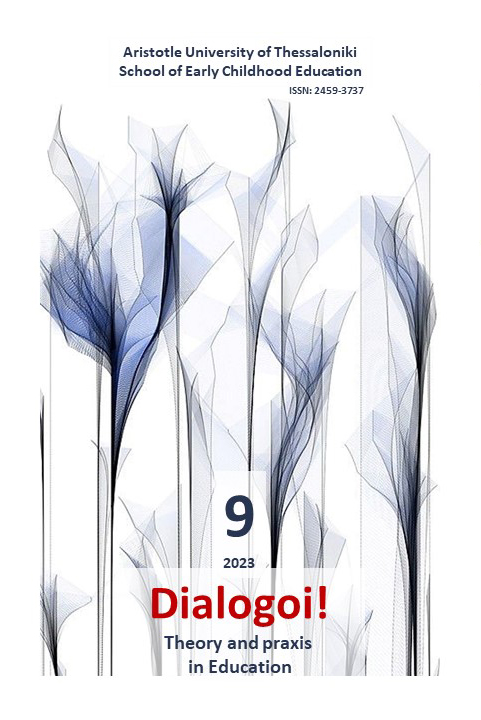A case study on preschool children’s preferences of and perspectives on their male and female early childhood educator

Abstract
Purpose of the study: The present case study aimed at exploring preschool children’s perspectives on if and how early childhood educators’ gender shapes the way they view their educators’ pedagogical role and the extent to which children show a preference to an educator based on his/her gender. Similarities and differences between boy’s and girls’ perceptions about their educators’ role were also explored. On the other hand, the study aimed at exploring whether children manifest different attitudes towards their educators at home. Method: Data from eight preschool-aged children were collected through children’s drawings, photographs, and conversational interviews. Five parents also completed an online questionnaire with open-ended questions. Results, Implications & conclusions: The study revealed that children assign a playful role to the male educator and an educational role to the female educator. Both children’s and parent’s data indicate that the existence of a male educator meets children’s, and especially boys’, desire or need for a male figure in the feminized ECEC sector. In addition, the study accentuates the need to listen to children’s voices for all issues affecting them, as well as to adopt a variety of methods to create diversified perspectives.
Article Details
- How to Cite
-
Rentzou, K. (2023). A case study on preschool children’s preferences of and perspectives on their male and female early childhood educator. Dialogoi! Theory and Praxis in Education, 9, 47–68. https://doi.org/10.12681/dial.36278
- Issue
- Vol. 9 (2023)
- Section
- Scientific columns

This work is licensed under a Creative Commons Attribution-NonCommercial-ShareAlike 4.0 International License.
Authors who publish with this journal agree to the following terms:
- Authors retain copyright and grant the journal right of first publication with the work simultaneously licensed under a Creative Commons Attribution Non-Commercial License that allows others to share the work with an acknowledgement of the work's authorship and initial publication in this journal.
- Authors are able to enter into separate, additional contractual arrangements for the non-exclusive distribution of the journal's published version of the work (e.g. post it to an institutional repository or publish it in a book), with an acknowledgement of its initial publication in this journal.
- Authors are permitted and encouraged to post their work online (preferably in institutional repositories or on their website) prior to and during the submission process, as it can lead to productive exchanges, as well as earlier and greater citation of published work (See The Effect of Open Access).


